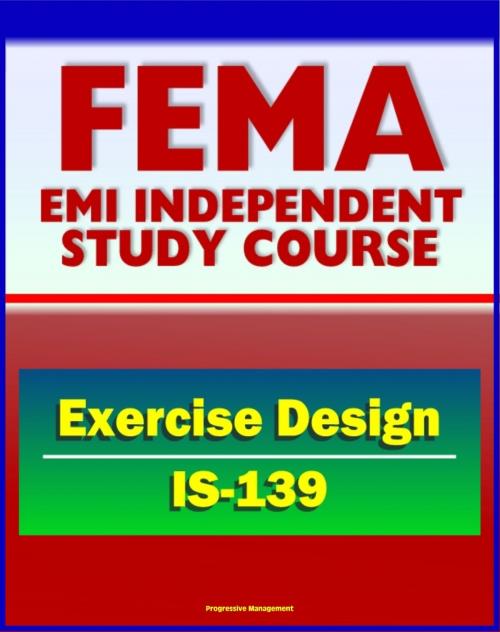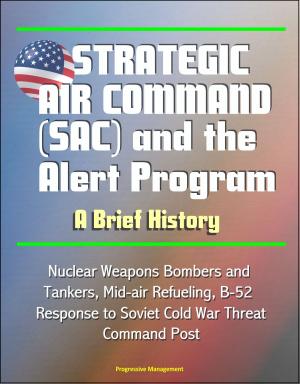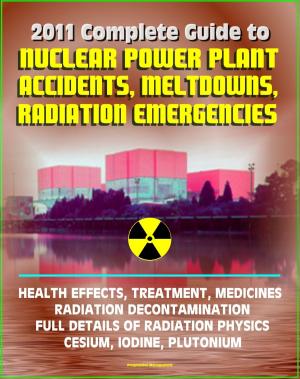21st Century FEMA Study Course: Exercise Design (IS-139) - Drills, Functional Exercises, Table Top and Full-scale Exercises, Emergency and Disaster Scenario
Nonfiction, Social & Cultural Studies, Political Science| Author: | Progressive Management | ISBN: | 9781465797285 |
| Publisher: | Progressive Management | Publication: | July 1, 2011 |
| Imprint: | Smashwords Edition | Language: | English |
| Author: | Progressive Management |
| ISBN: | 9781465797285 |
| Publisher: | Progressive Management |
| Publication: | July 1, 2011 |
| Imprint: | Smashwords Edition |
| Language: | English |
This Federal Emergency Management Agency (FEMA) independent training course manual from the Emergency Management Institute (EMI) covers the purpose, characteristics, and requirements of three main types of exercises: tabletop exercises, functional exercises, and full-scale exercises.
This course is based on one important premise: Emergency exercises are worth the effort. Exercises identify areas that are proficient and those that need improvement. Lessons learned from exercises can be used to revise operational plans and provide a basis for training to improve proficiency in executing those plans. This course is designed to introduce you to the fundamentals of exercise design and to prepare you to design and conduct a small functional exercise for your organization. It addresses the value of conducting exercises, the components of a comprehensive exercise program, the exercise development process and development tasks, the organization of the design team, exercise documentation, and the steps in designing an exercise.
Emergencies happen. Emergencies can be limited in scope or they can reach disaster proportions, sweeping through an entire community or multiple communities. Being prepared to respond to and recover from emergencies is everyone’s challenge. Whether your organization is a government agency tasked with a particular response role, a volunteer agency that responds to the community’s needs, or a private sector entity that may be faced with an emergency situation, you have an important role in that preparation. As an outcome of your community’s or organization’s emergency planning process, plans should be in place that specify how you prepare for emergencies, how you will respond if an emergency occurs, how you will mitigate the potential effects of emergencies, and how you will recover. Practice is an important aspect of the preparation process. Experience and data show that exercises are a practical, efficient, and cost-effective way for organizations in the government, nonprofit, and private sectors to prepare for emergency response and recovery.
This is a privately authored news service and educational publication of Progressive Management.
This Federal Emergency Management Agency (FEMA) independent training course manual from the Emergency Management Institute (EMI) covers the purpose, characteristics, and requirements of three main types of exercises: tabletop exercises, functional exercises, and full-scale exercises.
This course is based on one important premise: Emergency exercises are worth the effort. Exercises identify areas that are proficient and those that need improvement. Lessons learned from exercises can be used to revise operational plans and provide a basis for training to improve proficiency in executing those plans. This course is designed to introduce you to the fundamentals of exercise design and to prepare you to design and conduct a small functional exercise for your organization. It addresses the value of conducting exercises, the components of a comprehensive exercise program, the exercise development process and development tasks, the organization of the design team, exercise documentation, and the steps in designing an exercise.
Emergencies happen. Emergencies can be limited in scope or they can reach disaster proportions, sweeping through an entire community or multiple communities. Being prepared to respond to and recover from emergencies is everyone’s challenge. Whether your organization is a government agency tasked with a particular response role, a volunteer agency that responds to the community’s needs, or a private sector entity that may be faced with an emergency situation, you have an important role in that preparation. As an outcome of your community’s or organization’s emergency planning process, plans should be in place that specify how you prepare for emergencies, how you will respond if an emergency occurs, how you will mitigate the potential effects of emergencies, and how you will recover. Practice is an important aspect of the preparation process. Experience and data show that exercises are a practical, efficient, and cost-effective way for organizations in the government, nonprofit, and private sectors to prepare for emergency response and recovery.
This is a privately authored news service and educational publication of Progressive Management.















